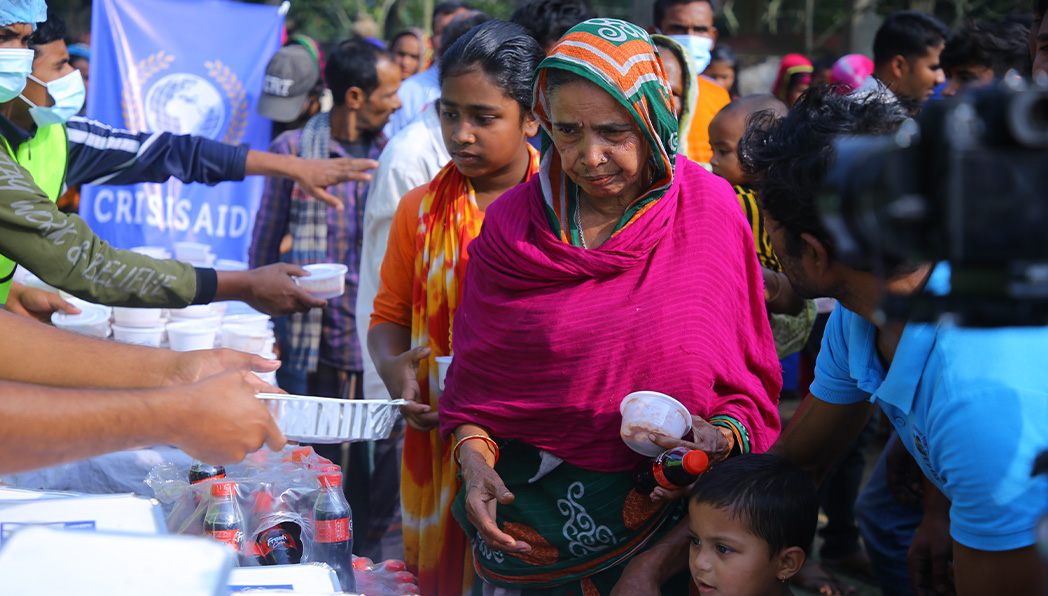Donate your Kaffarah

What is Kaffarah?
Kaffarah is the act of compensation for deliberately breaking or missing a fast during Ramadan without a valid reason. If a fast is deliberately broken, Kaffarah can be fulfilled by either fasting for 60 consecutive days or feeding 60 people in need.
By donating your Kaffarah through Crisis Aid, you’re not only fulfilling your religious duty but also providing vital meals to those who are hungry.
Donate now to fulfill your Kaffarah and help those in need.
Enter your donation ↓

Deliberate breaking of fasts during Ramadan?
This is expiation due for deliberate breaking of the obligatory fasts in the month of Ramadan due to sexual relations with one’s spouse whilst fasting; in this case the expiation is severe: to free a slave. If that is not possible, then one must fast for two consecutive months; if he is not able to do that, then he must feed sixty poor people.
“It makes no difference whether ejaculation occurred or not, so long as intercourse took place. If ejaculation occurred without intercourse no expiation is required, but one still incurs sin and must refrain from eating and drinking for the rest of the day, and must make up that fast.”
Crisis Aid can take care of your Kaffarah payment for just £3 per person. The total cost to feed 60 people for one day is £180.
Kaffarah Calculator ↓
Kaffarah is £180 to feed 60 people per broken fast per day.
Frequently asked questions
Kaffarah is the compensation required when a person deliberately breaks or misses a fast during Ramadan without a valid reason. It serves as an expiation for the sin committed.
2. How is Kaffarah fulfilled?
To atone for a deliberately broken fast, one must either:
- Free a slave.
- If that's not possible, fast for two consecutive months.
- If unable to fast, feed sixty poor people.
The cost to feed sixty people is £180, calculated at £3 per person. This amount ensures that each individual receives a meal.
Yes, Kaffarah is also required for:
- Breaking an oath.
- Deliberate violations during Hajj.
- Other specific transgressions.
Crisis Aid provides a Kaffarah calculator to help determine the total amount based on the number of fasts broken or oaths violated. You can access it on their website.
You can fulfill your Kaffarah obligation by donating the calculated amount through Crisis Aid's platform. They will distribute the funds to feed the required number of poor individuals on your behalf.
Why is Kaffarah Important?
Kaffarah is not just a penalty but a means of spiritual purification. It helps believers reflect on their actions, seek forgiveness, and support those less fortunate. By fulfilling Kaffarah, one not only atones for their missed fasts but also contributes to the well-being of struggling families.
Crisis Aid makes it easy to fulfil your Kaffarah by ensuring that your contributions directly support those in desperate need. Pay your Kaffarah today and help provide meals for the poor while fulfilling your religious duty.
